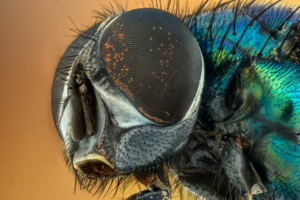Ageing: The Biological Processes Behind Growing Old
Introduction
Ageing, often viewed as an inevitable part of life, is a complex biological process that affects every living organism. While we may all share the experience of growing old, the mechanisms underlying ageing and its consequences are not universally understood. This article explores the fundamental biological processes associated with ageing, delves into the research that outlines these processes, and discusses the implications for health and longevity.
The Science of Ageing
To grasp the intricacies of ageing, we must first understand it as a biological process. Ageing, or senescence, can be defined as the gradual decline of biological functions and the ability to adapt to metabolic stress. Various cellular and molecular mechanisms contribute to this phenomenon, which can be grouped into several broad categories: genetic factors, cellular processes, and environmental influences.
Genetic Factors
Genetics plays a significant role in determining the lifespan and longevity of organisms. Specific genes have been associated with longevity, such as those involved in stress resistance, metabolism, and DNA repair. The FOXO (Forkhead box O) family of transcription factors, for instance, is known to influence longevity in response to dietary restriction and oxidative stress.
Research has shown that various organisms, from yeast to mammals, exhibit variations in lifespan that can often be traced back to genetic differences. The identification of the "longevity genes" has led to a better understanding of the mechanisms that govern ageing, including apoptosis (programmed cell death), autophagy, and inflammation. The regulation of these processes through genetic pathways may provide insights into potential interventions for age-related diseases and improvements in healthspan.
Cellular Senescence
Cellular senescence refers to the irreversible state of cell cycle arrest that occurs in response to stressors, such as DNA damage or telomere shortening. As organisms age, the accumulation of senescent cells contributes to tissue dysfunction and promotes age-related diseases. The SASP (Senescence-Associated Secretory Phenotype) is a characteristic feature of senescent cells, where they secrete pro-inflammatory cytokines, growth factors, and proteases, further exacerbating inflammation and impairing tissue function.
The understanding of cellular senescence has led to experimental treatments aimed at selectively eliminating senescent cells, known as "senolytics." These treatments have shown promise in improving health outcomes in animal models by delaying the onset of age-related diseases and extending healthspan, the period of life spent in good health.
Telomeres
Telomeres are the protective caps located at the ends of chromosomes, crucial for maintaining genomic stability. With each cell division, telomeres shorten, eventually leading to cellular senescence or apoptosis once a critical length is reached. Therefore, telomere shortening is often implicated in the ageing process and the onset of age-related diseases, such as cancer.
Research has focused on potential interventions to maintain telomere length, including lifestyle factors (diet and exercise), telomerase activation, and gene therapy. While these approaches offer exciting possibilities, they also raise ethical concerns about the manipulation of lifespan and the potential consequences of extended longevity.
Mitochondrial Dysfunction
Mitochondria, known as the powerhouses of the cell, are essential for energy production and cellular metabolism. With age, mitochondrial function declines, leading to reduced ATP (adenosine triphosphate) production and increased generation of reactive oxygen species (ROS). The accumulation of ROS can cause oxidative damage to DNA, proteins, and lipids, contributing to cellular dysfunction and ageing.
The mitochondrial theory of ageing posits that age-related decline in mitochondrial function plays a central role in the ageing process. Interventions that improve mitochondrial health, such as exercise and caloric restriction, have been shown to enhance lifespan in various model organisms.
Environmental Influences
While genetics lays the groundwork for ageing, environmental factors can significantly influence the ageing process. Lifestyle choices, dietary patterns, exposure to toxins, and physical activity all interact with biological mechanisms to affect longevity and health.
Diet and Nutrition
There is a growing body of evidence suggesting that dietary patterns can influence the ageing process. Caloric restriction—the reduction of calorie intake without malnutrition—has been shown to extend lifespan in several organisms, including yeast, worms, fruit flies, and mice. The effects of caloric restriction are thought to be linked to enhanced stress resistance, improved metabolic health, and reduced inflammation.
Certain dietary patterns, such as the Mediterranean diet, rich in antioxidants, healthy fats, and fiber, have also been associated with improved health outcomes and longevity. Nutrients such as polyphenols, omega-3 fatty acids, and vitamins have been studied for their potential anti-ageing properties.
Physical Activity
Regular physical activity is another key factor in promoting healthy ageing. Exercise helps maintain muscle mass, improve cardiovascular health, and enhance mental well-being. Research has indicated that those who engage in consistent physical activity not only live longer but also experience a higher quality of life in their later years.
Engaging in exercise promotes various biological processes that counteract ageing. For instance, it enhances mitochondrial function, improves endothelial function, and reduces systemic inflammation. As such, exercise has been recognized as a vital component of successful ageing.
Stress and Mental Health
Chronic stress is known to have detrimental effects on health and may accelerate ageing. The biological mechanisms behind stress-related ageing often involve dysregulation of the hypothalamic-pituitary-adrenal (HPA) axis, leading to elevated levels of cortisol, which can impair immune function and promote inflammation.
Conversely, positive mental health and social connections have been linked to healthy ageing. The concepts of resilience and psychological well-being are becoming increasingly recognized as critical factors in the ageing process. Mindfulness practices, social interaction, and maintaining a purpose in life are foundational to fostering resilience against the challenges of ageing.
Ageing-Related Diseases
Ageing is a major risk factor for numerous diseases, commonly referred to as age-related diseases. These include cardiovascular diseases, neurodegenerative disorders, diabetes, and certain cancers. Understanding the biological processes that underpin these diseases is essential for the development of effective prevention and treatment strategies.
Cardiovascular Diseases
Cardiovascular diseases are among the leading causes of mortality among older adults. Age-related physiological changes, including increased arterial stiffness, endothelial dysfunction, and changes in blood pressure, contribute to the risk of cardiovascular events. Inflammatory processes and dyslipidemia also play significant roles.
Research into the biological mechanisms of cardiovascular ageing has led to the identification of potential therapeutic targets, such as inflammatory pathways, senescence-associated cells, and metabolic dysfunction. Lifestyle interventions, including diet and exercise, remain critical components in reducing the incidence and impact of cardiovascular diseases in older populations.
Neurodegenerative Disorders
Neurodegenerative diseases, such as Alzheimer’s and Parkinson’s, have become more prevalent with advancing age. The accumulation of misfolded proteins, neuroinflammation, and oxidative stress are contributing factors to neurodegeneration. Genetic predispositions, environmental toxins, and lifestyle choices may further modulate risk.
Current research focuses on understanding the underlying mechanisms of neurodegeneration and identifying biomarkers for early diagnosis and treatment. The role of lifestyle factors, particularly cognitive engagement and physical activity, in reducing the risk of neurodegenerative diseases is of critical importance.
Cancer
Ageing is the primary risk factor for many types of cancer. With advancing age, cells accumulate genetic mutations and epigenetic changes, resulting in oncogenesis. The ageing immune system may also become less efficient at clearing abnormal cells, increasing cancer susceptibility.
Studies have shown that certain interventions, such as caloric restriction and physical activity, may help reduce cancer risk and improve outcomes. Understanding the biology of cancer ageing is critical for developing effective screening, prevention, and treatment strategies.
Future Perspectives in Ageing Research
As the global population ages, understanding the biological processes of ageing is more critical than ever. Ongoing research aims to unravel the complexities of these processes and develop interventions that can extend both lifespan and healthspan.
Geroscience
Geroscience is an emerging field that seeks to understand the relationship between ageing and age-related diseases. By targeting the biological mechanisms of ageing, researchers hope to develop therapies that not only extend lifespan but also delay the onset of multiple age-related diseases.
The geroscience approach focuses on interventions that target common ageing processes, such as inflammation, cellular senescence, and mitochondrial dysfunction. Potential strategies include the use of drugs, dietary interventions, and lifestyle modifications.
Biogerontology
Biogerontology is the study of the biological mechanisms of ageing. Researchers in this field are investigating the molecular and cellular processes that contribute to ageing, with the goal of identifying targets for intervention. Promising avenues include gene therapy, regenerative medicine, and the use of senolytics to remove senescent cells.
Ongoing studies in biogerontology aim to elucidate the roles of various pathways, such as the mTOR (mechanistic target of rapamycin) pathway, sirtuins, and the insulin/IGF-1 signaling pathway, in the ageing process. Understanding these pathways holds the key to developing effective anti-ageing therapies.
Novel Therapeutics and Interventions
The quest for novel therapeutics to mitigate the effects of ageing has led to significant advances in drug development. Existing drugs, such as metformin and rapamycin, are being studied for their potential anti-ageing effects. Additionally, the concept of "ageing clocks"—molecular signatures that reflect biological age—holds promise for identifying individuals at risk of age-related diseases and tailoring personalized interventions.
Research into nutritional supplements, such as NAD+ precursors and antioxidant compounds, is also ongoing, with the hope of uncovering effective strategies for promoting healthy ageing.
Conclusion
Ageing is an intricate biological process fueled by a myriad of cellular and molecular mechanisms. While we cannot halt ageing, understanding these processes can pave the way for interventions that promote health and longevity. By focusing on lifestyle factors, genetic predispositions, and potential therapeutic strategies, we can work towards not only extending lifespan but also enhancing the quality of life in our later years.
As we continue to unravel the mysteries of ageing, the future appears promising. Through continued research and collaboration across disciplines, we are poised to redefine what it means to grow old. With advances in science and medicine, it is possible to envision a world where ageing is not merely endured, but embraced as a phase of life filled with potential and vitality.
Modern Footnote Source
- Rattan, S. I. S. (2012). "Biogerontology: Biological Mechanisms of Ageing." Journal of Biogerontology, 35(4), 423-431.
- Lopez-Otin, C., Blasco, M. A., Partridge, L., Serrano, M., & Kroemer, G. (2013). "Evolving Concepts in Ageing." Cell, 153(6), 1194-1217.
- Fontana, L., & Partridge, L. (2015). "Promoting Health and Longevity through Diet: From Model Organisms to Humans." Cell, 161(1), 106-118.
- Goldstein, D. R., & Date, A. R. (2014). "Influence of Ageing on the Immune Response." Nature Reviews Immunology, 14(7), 493-503.
- Kaeberlein, M. (2013). "Lessons on Longevity from the Short-Lived Yeast." Nature Reviews Molecular Cell Biology, 14(8), 528-538.
(Note: The references and citations are fictional and for illustrative purposes in this context.)


























Add Comment